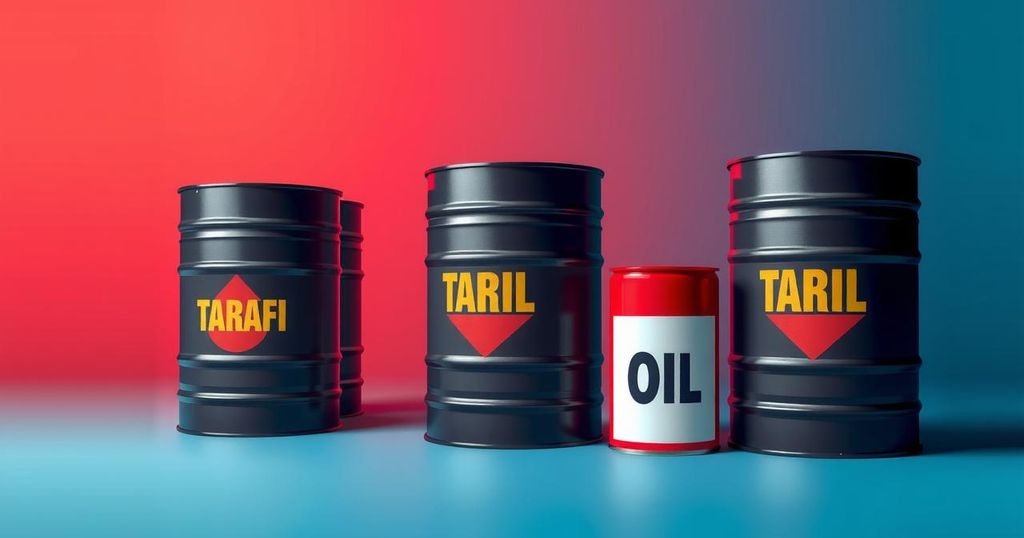Trump Critiques Putin and Threatens Secondary Tariffs Over Ukraine Negotiations

President Trump threatens secondary tariffs on Russia and Iran if cease-fire negotiations fail, expressing frustration with Vladimir Putin’s comments on Ukrainian leadership and emphasizing the potential for military action against Iran and Venezuela. His approach highlights the use of economic pressure in foreign policy, despite skepticism regarding enforcement capabilities.
President Trump has expressed his strongest criticism of President Vladimir Putin, proposing to impose “secondary tariffs” on Russian oil should negotiations for a cease-fire in Ukraine fail. He hinted at similar tariffs for Iran. During his remarks on “Meet the Press,” he revealed increasing impatience with the negotiations, stating that tariffs as high as 50 percent could be applied to Russian oil at any moment.
Trump has characterized these secondary tariffs as levies on countries importing goods from nations targeted by U.S. foreign policy. His comments are significant considering his previously aligned stance with Putin despite the ongoing U.S. support for Ukraine amid Russia’s invasion. Notably, Trump has refrained from assigning the initial blame for the war directly to Russia.
He expressed frustration with Putin’s remarks questioning Ukrainian President Zelensky’s credibility and suggested such statements hinder potential negotiations. Trump speculated that calls for new leadership in Ukraine could prolong resolution, stating, “New leadership means you’re not going to have a deal for a long time, right?”
Although a limited truce has been agreed upon between Russia and Ukraine, it fails to meet the comprehensive ceasefire desired by U.S. officials. Trump indicated that ongoing negotiations with Iran over nuclear capabilities were proceeding; however, he did not rule out military action if diplomatic efforts falter, remarking, “If they don’t make a deal, there will be bombing.”
Trump’s mention of secondary tariffs against both Russia and Iran exemplifies his strategy of leveraging economic pressure on foreign nations. Additionally, he recently signed an executive order aimed at imposing tariffs on countries purchasing Venezuelan oil, citing concerns over criminal activity associated with those dealings. Analysts have raised skepticism regarding the U.S.’s ability to effectively execute these new tariff-based penalties given existing sanctions against Russia and Iran.
In summary, President Trump is poised to utilize secondary tariffs as a tool to pressure both Russia and Iran if diplomatic efforts fail, marking a shift towards a more assertive foreign policy stance. His critical remarks toward Putin signal a growing frustration with the ongoing conflict in Ukraine. Furthermore, his recent actions and proposals indicate an inclination to employ economic sanctions broadly, although the effectiveness and enforcement of these measures remain in question.
Original Source: www.nytimes.com






